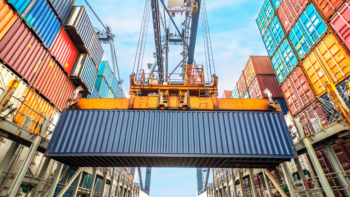Since the beginning of specialization in shipping, especially containerization, the freight transport industry has gradually shifted from the traditional port-to-port concept towards a door-to-door approach. This has stimulated the growth of multimodal transport, and ICDs or dry ports have emerged as a means of making better use of inland infrastructure and hence improving the overall efficiency of international logistics. The containerized trade has penetrated further inland and volumes have risen substantially, making dry ports an integral part of logistics by extending seaport functions inland.
In Nigeria, the decision to create inland container depots may also be linked to a large extent with the fact that the economic reform measures of the present administration are hinged on free market modalities with transportation as the engine room to drive it. Besides, the opportunities in the ICDs appear numerous enough to stimulate the economic processes, ginger the economy in the hinterland and create robust environment that will accelerate growth.
ICD operations in Nigeria started in 1979 when Elder Dempster lines,
a leading member of the United Kingdom West Africa Liner Conference
(UKWAL), joined with the Nigeria Insurance Corporation of Nigeria (NICON)
to establish ICDs in Kano and Kaduna under the management of a company called Inland Container Nigeria Limited (ICNL).
The two ICDs were originally conceived to serve the hinterland and its landlocked
neighbours (Niger and Chad), and were established as extensions to the seaports and to operate within guidelines set by the Nigerian Ports Authority, whereby cargo discharged at the seaports destined for the hinterland is immediately land freighted to the ICDs under Customs bond.
One of the reasons for the establishment of the ICDs was to cater for shippers in the hinterland, particularly those in the northern part of the country.
However, the management and operational success of the two ICDs in Nigeria was cut short in 1996 when a new port policy, instigated by the Federal Government, required inspections to be carried out only at the seaports.
In 2000, the Federal Ministry of Transport of Nigeria, acting on the recommendation of the Nigerian Shippers’ Council, approved the implementation of a feasibility study for the establishment of a number of ICDs at designated locations across the country.
Government embarked on the implementation of these ICDs in a phased manner under the supervision of the Federal Ministry of Transport. This has however remained tardy over the years.
The ICD Implementation Committee was established, with the Nigerian Shippers’ Council as the implementing agency. Concessions were granted to six firms to build, own and transfer ICDs at six locations, namely Kano, Kaduna, Funtua (Katsina State), Isiala Agwa (Abia State), Jos (Plateau State) and Ibadan (Oyo State).
The facilities were expected to be linked to linked to the seaports by rail.
However, more than 10 years after the so-called concession, none of the ICDs has become operational with the various actors including the Federal Government, State Governments, Nigerian Shippers’ Council, Nigeria Railway Corporation and the concessionaires trading blames and engaging in buck-passing.
If the ICDs must work, those who have been licensed to operate them must immediately wake up to the responsibility of making necessary investment in the facilities. The Federal Ministry of Transportation and the Nigerian Shippers’ Council must also rise above their familiar refrain by ensuring that the facilities are promptly linked with the seaports by rail and designated as ports of destination.
It is time for real action, we have had enough talk.
